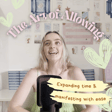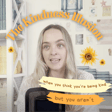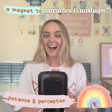
Wellbeing, Curiosity, Mindset + Kindness with Cooper Chapman
Cooper Chapman is the smiley human behind The Good Human Factory, a company which teaches science-backed skills such as mindfulness, gratitude, kindness, empathy, and taking responsibility to thousands of people around the world. I’ve had the pleasure of attending a couple of Cooper’s events, and his passion for helping people manage their mental health and find mindful moments within each day is inspiring and infectious.
Growing up in Narrabeen, Cooper was a professional surfer for more than 10 years. His interest in mental health was prompted by his father’s bout with depression and the suicide of two family friends. Meditating on a regular basis and practicing mindfulness helps Cooper manage his anxiety and perform at a high level, whether he’s competing in a contest or giving a speech.
Through his workshops, podcasts, merch and community, he inspires people to think differently about mental health and wellbeing.
In this episode, Cooper and I chat about our similar upbringings, as we both grew up in competitive industries, being in the acting and surfing worlds. We chat all about self reflection, values, mindset, comparison, curiosity, kindness, gratitude and how we can all dedicate 1% of our day to looking after our mental health. It’s an inspiring episode that will have you feeling motivated to do better and be better!
To connect with Cooper and learn more about the 1% Good Club and all the other amazing things he’s got going on, follow his links below:
The Good Humans Podcast on Apple here, and on Spotify here.
Cooper's Instagram
Good Human's Instagram
Pass Around the Smile's Links below
View my website here! (My very own oracle cards, journals, meditations, courses + more magical stuff!)
Join my Facebook community group here!
Find me on Instagram here! @passaroundthesmile @cleomassey
The Pass Around the Smile podcast is recorded on Bundjalung Country, in South East Queensland, Australia. We acknowledge the Yugambeh people of the Bundjalung Nation, the traditional owners of this land. We pay our respects to Elders past, present and emerging.









